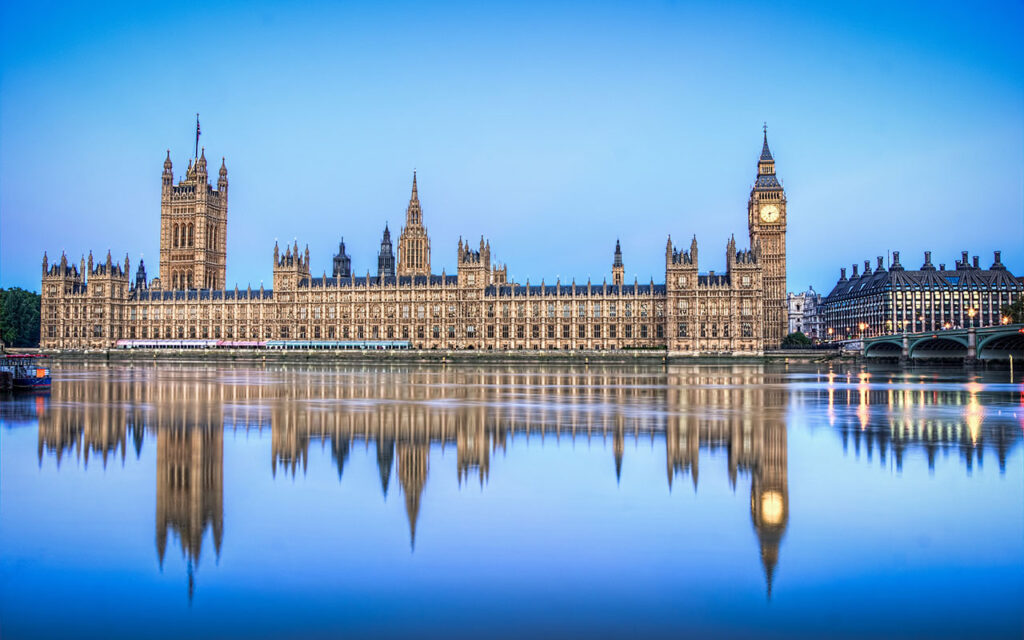June was a busy month for all things pigs in Westminster, with action in parliament and some movement with ministers in Defra.
Looking at parliament first, taking inspiration from the age-old adage about London buses, we have had two debates looking at farm animal welfare. The first was a broad debate on animal welfare, secured by East Anglia MP and co-leader of the Green Party, Adrian Ramsay.
The second was more specifically to debate e-petition 706302 relating to the use of cages and crates for farmed animals. This long-awaited debate came after the e-petition, organised by Compassion in World Farming and Dame Joanna Lumley, reached 100,000 signatures.
Unsurprisingly, the use of conventional farrowing systems, and a desire to see them banned, was a big talking point for both debates. Other areas of interest included the use of enriched colony cages for hens and individual calf pens.
While there were a number of emotive speeches calling for such ‘cruel practices’ to be banned, we provided extensive briefing ahead of each debate to ensure the industry’s position was well represented.
MPs highlighted challenges, such as the cost and time required to replace indoor pig buildings, the dangers of transitioning too quickly and the need to have a trade policy that protects domestic producers.
Trade equivalence
Trade was repeatedly discussed across both debates. Numerous MPs from across all three main parties called on the government to reform import policies to ensure there is equivalence in production standards, ensuring imported pigmeat cannot be produced to standards that would be illegal for domestic producers to produce.
Numerous MPs, including both the shadow minister and Liberal Democrat spokesperson, highlighted the NPA’s position and our calls for a substantial transition period to roll out flexible farrowing systems.
While there has been an element of silence from the government of late, we were extremely encouraged by the response from farm minister Daniel Zeichner to both debates. He was extremely pragmatic and clearly understood many of the challenges facing the sector.
Most importantly, he was very aware of concerns from the industry that we could end up with a repeat of 1999, ‘unintentionally replacing UK production with lower welfare production overseas’.
The minister was also quite forthright in pushing back on the idea that big is bad, including from those MPs on his own side, making it clear he did ‘not agree with some of the comments about large-scale production’.
He stressed that it is not about size, but about ensuring good stockmanship and high husbandry standards on farm.
In terms of future systems, the minister welcomed the work done to date, and the significant help and investment that has been provided by some retailers.
As this is taken forward by government, he committed to ensuring all proposals are subject to a full consultation.
Similarly, he recognised this change will require large-scale and expensive changes to indoor pig units. This will ‘require communities to recognise that the planning system will have to accommodate changes to allow better welfare, so we need to get specifications right’.
Spending Review
Talking of planning, much of the government’s recent inaction was in part owing to the Comprehensive Spending Review. It was all anyone in Westminster was talking about for months and then it came and went in a flash.
The Treasury reviewed every line of government spending to ensure value for money and minimal waste. I will leave it for you to decide whether the government is now delivering value for money, but the result is that the chancellor has set government departments’ day-to-day and capital spending budgets until the next general election.
I have written more about this on the NPA website, but the long and short is that while Defra, perhaps, did better than many were expecting, its overall budget is due to drop by 2.3% in real terms by the end of the SR period. It is still going to have to do more with less.
With that now out of the way, we have seen a whole host of Defra workstreams start to breathe some life again, including efforts to reform the planning system for the benefit of farmers.
Minister Zeichner has undergone an extensive series of roundtables, bringing together industry and MHCLG (the planning department) to drive reform.
There is still a long way to go, but we are encouraged by initial proposals to update the National Planning Policy Framework, revise biodiversity net gain thresholds, reform permitted development rights and a national scheme of delegation to local planning officers, rather than committees. We have had similar roundtables with ministers over farming pollution regulatory reform.
We are due to meet again soon to discuss farmed animal welfare. While clearly focusing on farrowing systems for the pig sector, these discussions will form part of the government’s broader animal welfare strategy, which is due to be published by the end of the year.




